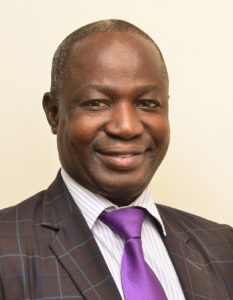- May 27, 2019
- Posted by: admin
- Category: Current News
 The Director of the MEFMI Debt Management Programme, Mr. Stanislas Nkhata, is the new chairman of the Debt Management Facility (DMF) Implementers Coordination Group (IGG). He was elected during a meeting held on 12 May 2019 in Dakar, Senegal.
The Director of the MEFMI Debt Management Programme, Mr. Stanislas Nkhata, is the new chairman of the Debt Management Facility (DMF) Implementers Coordination Group (IGG). He was elected during a meeting held on 12 May 2019 in Dakar, Senegal.
DMF is a multi-donor trust fund launched in 2008 to scale-up and accelerate implementation of the World Bank’s debt management work program in low income countries with the goal of strengthening debt management capacity and institutions in developing countries. The Facility is managed by the World Bank and its implementers are partners are: MEFMI, West African Institute for Financial and Economic Management, Commonwealth Secretariat, UNCTAD, IMF, Agence UMOA-Titres and Development Finance International. The partners are known as ICG, and its meeting preceded the World Bank’s DMF 10th Annual Stakeholders Forum held from 13 to 14 May in Dakar, Senegal.
Held under the theme of “The Future of Debt Management”, the Forum aimed to discuss the past decade of debt, development and debt management, expose looming challenges related to rising debt vulnerabilities; debt management reforms; and identify emerging opportunities from innovative financing to applications of nascent technologies to address debt management challenges. It was attended by about 150 policy-makers, government debt managers, technical assistance providers, representatives of civil society organizations, as well as bilateral donors and multilateral development banks.
The Forum covered diverse areas of public debt management as follows:
- Debt and Development: From Past to Future
- Debt Management: The Bad Uncle of Fiscal Policy?
- Global Perspectives for Sovereign Debt and Challenges ahead
- Loan Guarantees and Contingent Liabilities
- Reliable Debt Data: The Fundamental Role of the Back- office
- Improvements in debt reporting in Africa
- Developing Regional Domestic Debt Market: Trends and Lessons Learned
- International Bond Issuances: Challenges for Infrequent Issuers
- Debt Transparency: A Shared Responsibility
- A decade of the DMF
- Sovereign Asset and Liability Management (SALM) for public debt managers
- Challenges for Debt Management Reform Implementation
- Assessing Debt Vulnerabilities in Market Access Countries
- Innovative Financing
- Why debt and deficit are not dirty words
- The Future of Debt Management.
Delegates expressed concern about the substantial increase in public debt over the past decade, noting that the number of countries going into high risk of debt distress has increased. In this regard, they reiterated the need for governments to implement sound macroeconomic and debt management policies supported by analytical work; adopt robust legal and institutional frameworks; ensure transparency of debt management operations; and the need for improved coordination among all stakeholders in order to ride the tide of public debt accumulation.
